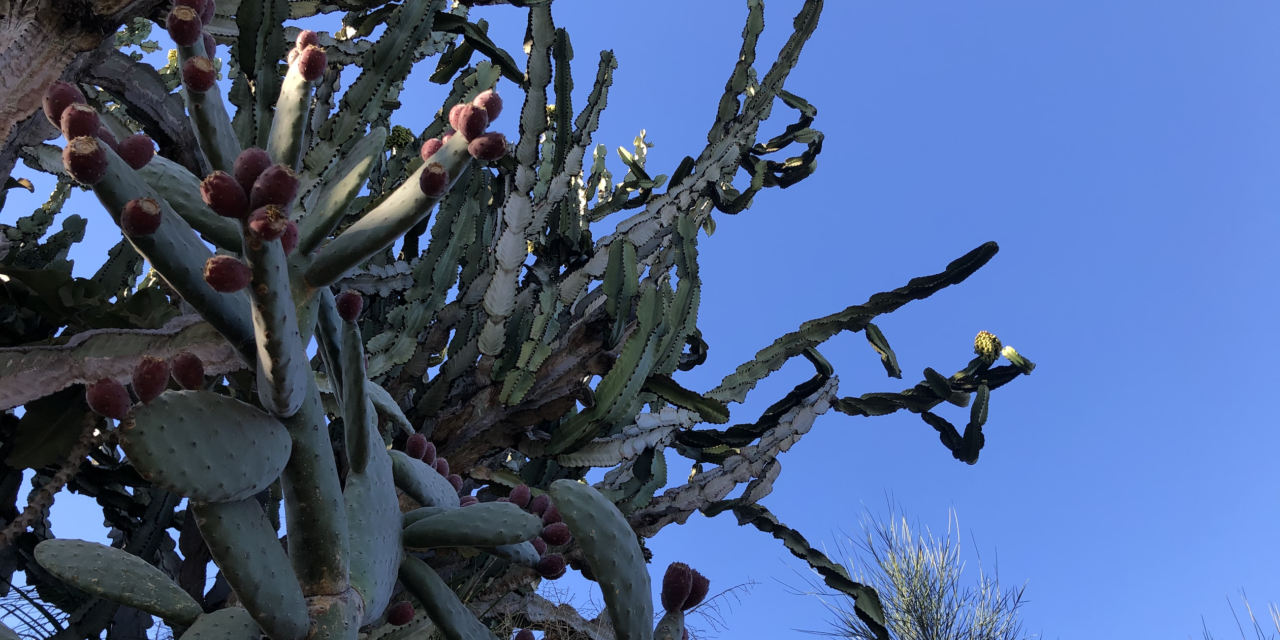Melissa Broder was a poet until she moved to LA and started dictating in her car instead of writing poetry on the subway. Her X formerly known as Twitter account @SoSadToday became a book of essays about what else, her sadness. In interviews, she relays this with a matter-of-factness that you aren’t quite sure how to take. Is it deadpan? Is it serious? Is it both? This tone lends itself well to Broder’s books where encountering mermen or gollums are tantalizing possibilities but not guaranteed. It’s not a world of many certainties.
Broder’s third novel, Death Valley, starts off in the least fantastical of genres, autofiction. An unnamed writer living in Los Angeles takes a trip to the desert to research the “desert section” of her unfinished novel, momentarily escaping the responsibility of her father’s hospitalization and her husband’s chronic illness. She fears her inability to care for others or alleviate their suffering. Broder’s first two novels, The Pisces and Milk Fed, centered around protagonists in the throes of addiction, the plot propelled forward by their self-hatred. Death Valley asks: how do you dramatize the struggle of an essentially moral person trying to be present and yearning for guidance without veering into monotony?
A possible solution for the narrator is a magical cactus she discovers that acts as a channel to younger versions of her father and husband. The cactus, she decides, definitely goes in her new book. The plot also forces the narrator to be present by forcing her offline for large sections (the desert has bad cell service). Like Patricia Lockwood’s No One Else is Talking About This, the intoxicating hum of the internet coexists with and eventually cedes to the tragedy of family illness.
Lockwood and Broder both gained prominence and book deals through Twitter, so it’s interesting to note that they both have their extremely online protagonists shift offline as they grapple with their families’ tragedies.
Death Valley is a novel blend of mundanity (exhausted middle-aged writer contemplates breakfast choices of a Best Western), family mortality, and magical realism (magical cactus). The blend is strange but never jarring. What it most succeeds at is explaining the allure of a dumb decision. The narrator is exhausted and unfulfilled by her obligations to her hospitalized father and chronically ill husband. She loves both of them, but the demands of caring for other people drain her. This half vacation is a break. She reverently appreciates the Mexican automat and the Best Western employees. Having found a cactus in the desert that allows her to interact with past versions of her father, why wouldn’t she return? It’s the opposite of the pained, taciturn man in the hospital.
Survival stories make hopefully all of us but maybe just me judgmental. My inner monologue just becomes: Don’t go into the desert, don’t go into the desert without telling anyone where you’re going, don’t go into the desert without telling anyone where you’re going and without adequate supplies. In a survival story, protagonists are either foolish or ultra-competent to the point their misfortune seems to be entirely the wrath of God. Decisions are neatly divided between things I would never ever do and things I would not know better to do differently. Neither are particularly satisfying. This book captures a state of neurotic non-thinking that leaves someone trapped. Ordinary life usually insulates us from life and death scenarios of survival. Small mistakes like dehydration can easily be solved in our ordinary lives. Survival stories are about decisions that seemed perfectly rational at the time. Going just a bit further in search of her magical cactus makes perfect emotional sense. The narrator goes into the desert to find material for her character’s revelation in the desert. She’s layers removed from the real thing, longing for enlightenment without any interest in suffering for it.
The desert subsumes the novel, spits the reader out at the end: dehydrated and maybe changed. It’s a world our narrator is unable to name and struggles to survive. For her, the desert consists of glittery rocks and lizard-iguanas. The non-specificity of the narrator, her relationships, and the environment in which we spend most of the novel are frustrating. I don’t know if she has changed, she doesn’t know if she has changed either.
Lost and eventually injured in the desert, her magical cactus vanished, the narrator has visions, talks to rocks, and encounters avatars of her father. She comes to accept his death before her eventual rescue. What the narrator understands happened to her in the desert and what appears to have actually happened are two different things. Figurative and literal understandings of the events coexist. Broder’s protagonists accept this, initially intoxicated by the magical but eventually choosing realism, the real world. The narrator just wants to get back to her family. The narrator is a nice person, she’s just exhausted by it all. In the end, the narrator winds up exactly where she always wanted to be: in a hospital room, assured of her family’s love, cared for instead of caring.

